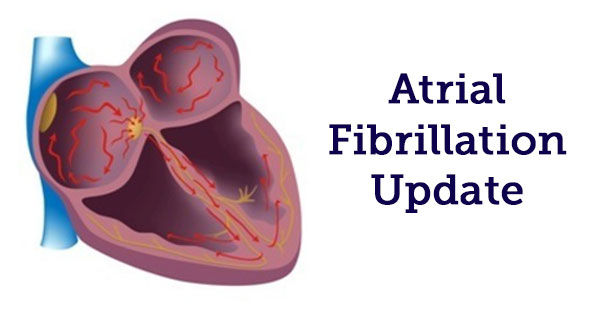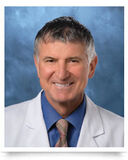Atrial Fibrillation After Heart Surgery: What Should Patients Know?
Written By: Adam Pick, Patient Advocate, Author & Website Founder
Page last updated: November 7, 2023
At the recent Heart Valve Summit, I was overwhelmed with wonderful patient questions for our “Ask Adam Anything” event. For example, Eileen asked me about atrial fibrillation (AFib) which is an abnormal heart rhythm. Eileen’s question was, “Is atrial fibrillation after heart valve surgery common?”
As you may know… Atrial fibrillation is closely associated with heart valve disease. For that reason, I wanted to get Eileen an expert opinion. So, I tracked down Dr. Marc Gillinov who is the new Chair of Cardiac Surgery at the Cleveland Clinic. So you know, Dr. Gillinov is a guru when it comes to valvular heart disease and atrial fibrillation. You should also know that Dr. Gillinov has successfully treated many, many, many patients from our community including Anita Devine, Jeff Pirofsky and Fran Zilko.
Here are the highlights from my interview with Dr. Gillinov about atrial fibrillation after heart surgery.
As Dr. Gillinov shares in the video, the “temporary” occurrence of atrial fibrillation resolves over time in about 94% of patients. That said, you may be wondering what should be done for the 6% of patients that continue to experience Afib. Doctor Gillinov shared there are three steps that patients should take to potentially remedy their Afib — see an electrophysiologist, have a cardioversion, and have an ablation if symptoms continue.
I hope this helped Eileen (and perhaps you) learn more about atrial fibrillation after surgery. On behalf of our community, I want to extend a huge “Thank You!” to Dr. Gillinov for taking the time to share his research and clinical experience with our community!
Keep on tickin!
Adam
P.S. For the hearing impaired members of our community, I have provided a written transcript of my interview with Dr. Gillinov below.
Adam Pick: Hi, everybody. It’s Adam with HeartValveSurgery.com and we are here at the Heart Valve Summit in Chicago, Illinois. I am thrilled to be with Dr. Marc Gillinov. Marc, it’s great to see you again.
Marc Gillinov: Thank you.

Adam Pick: This is the Chair of Cardiac Surgery now at the Cleveland Clinic. Marc, thanks so much for being with us.
Marc Gillinov: My pleasure.
Adam Pick: We have questions coming in from all over the country, all over the world, about heart valve surgery and AFib has come up, Marc. We’ve got a question from Eileen. She asks, “Is AFib after heart valve surgery common?”
Marc Gillinov: Yes. Let me start though with one word, one word to remember when you’re talking about AFib after heart valve surgery. The one word is temporary. AFib after heart valve surgery is almost always temporary. That’s the key thing to remember. Now for the details; getting down to the wheats.
About half of people get AFib after heart surgery, particularly heart valve surgery, and again the word is temporary. It is gone within six weeks in 94% of people. That’s from a large randomized control in a sponsored trial. So, 94% of the time it goes away within six weeks. It goes away mo matter how we treat it. If I give you a Beta-blocker, an antiarrhythmic medication like Amiodarone, if I try to use the paddles and shock you out of it, or if I do practically nothing, it almost always goes away; back to that word, temporary.
Adam Pick: Marc, I guess one of the questions – one, it’s fantastic that 94% of the patients will see the AFib taper off in a temporary way. I guess one of the questions patients might have is why do I get AFib after heart surgery? Why is that?

Marc Gillinov: Short answer is we don’t know. Longer answer, it’s a response to many facets of the heart surgery. It may be mechanical manipulation; we’re touching your heart. We’re inside your heart. We’re working on your valves, so there’s a mechanical manipulation. There’s inflammation associated with that which tends to go away. There’s an increase in your stress response, the fight or flight response. You have increased epinephrine or adrenaline in your system, and those probably relate – the inflammation and stress response – because those are temporary and to a certain extent [para] of the course of the AFib. One thing we know for sure, we can’t prevent it very well, but it does go away.
Adam Pick: Well, I hope that helped Eileen and all the other members of the community. I know it helped me, Marc. On behalf of our patients and our community, whether it’s Anita Divine or Jeff Pirofsky, who you’ve helped over the years, we cannot thank you enough for all the great things you’re doing at the clinic and taking care of our patients here at HeartValveSurgery.com. Thank you so much.
Marc Gillinov: My pleasure.
|
Barbara Lynch says on November 16th, 2017 at 3:32 pm |
|
I have been reading about surgery on the heart. I have to have a valve replaced and I am trying to under stand how it is done. When I asked my doctor all he told me is they are going to open my chest, stop my heart, take out the bad valve and replace it with a pig valve or a cow’s valve. I would appreciate it if you could shear me to more information. |
 |
|
Helen Vergillo Deocampo says on November 16th, 2017 at 7:21 pm |
|
Interesting. I only developed a-fib 19 years after valve surgery. Had cardioversion 2 times, cannot have ablation due to anomalous venous system. Had pacemaker several months ago, but still have occasions of a-fib. Am on Metoprolol and fleccanide.. put on over 10 lbs since Metoprolol. Very disturbing. |
 |
|
Larry Sparks says on November 18th, 2017 at 1:14 pm |
|
I developed AF fib after surgery and it has remained for the last 2.5 years. After 3 days in the hospital, I had surgery to implant a pacemaker. I have what is called a Paroxysmal atrial fibrillation that is active less than 1% of the time. My LV Ejection Fraction is 45%. What can I do to increase this Ejection Fraction and will AF Fib ever disappear? Please advise, thank you |
 |
|
Kathy Mack says on November 2nd, 2018 at 3:38 pm |
|
My husband had mitral valve repair 16 days ago using the daVinci method. He had been feeling really good until yesterday when he started feeling lightheaded and clammy. I took him to the ER and the only thing they found was a-fib (or possibly a-flutter). So, he now has to take a blood thinner on top of the beta blocker and statin prescribed after surgery – something he’s not too happy about. It’s good to read that it will probably be temporary. He has two aneuryms (abdominal and popliteal) that have to also have to be repaired so he needs to be able to be off the blood thinner. |
 |











